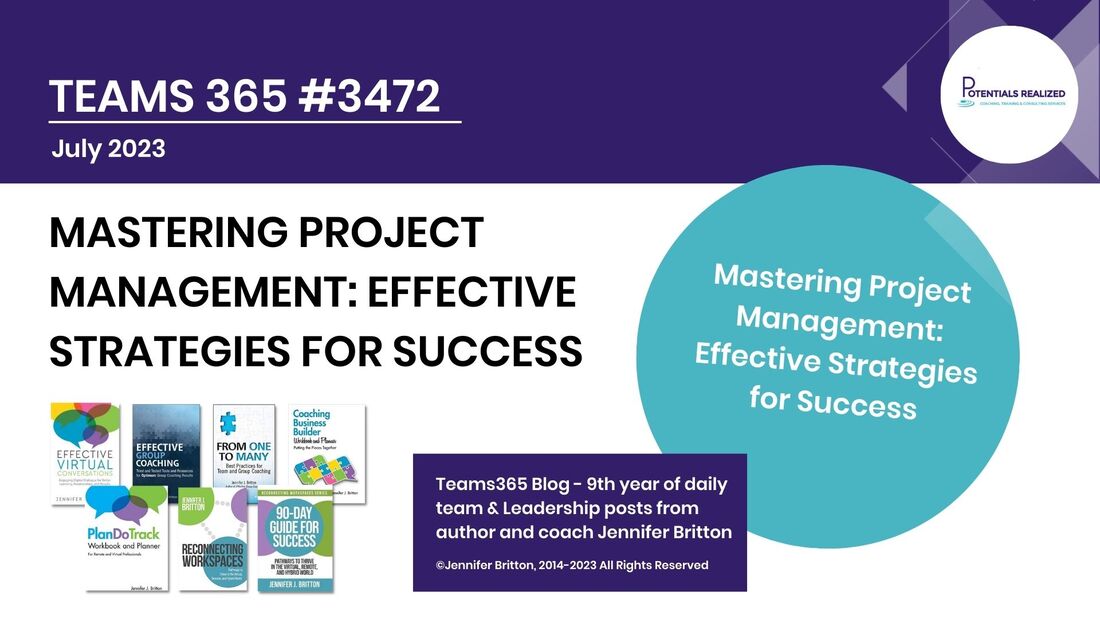- Define Clear Project Goals and Objectives: Start by defining clear project goals and objectives. Understand the desired outcomes and break them down into measurable and achievable targets. Clearly communicate these goals to your team members and stakeholders to align everyone's efforts towards a common vision.
- Develop a Detailed Project Plan: Create a detailed project plan that outlines all the tasks, milestones, deadlines, and resources required for successful project completion. Break the project into smaller, manageable tasks and establish dependencies and timelines for each one. A well-structured project plan provides a roadmap and ensures everyone understands their roles and responsibilities.
- Assign Roles and Delegate Tasks: Assign specific roles and responsibilities to team members based on their skills and expertise. Delegate tasks and clearly communicate expectations to each team member. Empower your team by providing the necessary resources and support, and foster a collaborative environment that encourages open communication and problem-solving.
- Establish Effective Communication Channels: Establish effective communication channels to keep everyone involved and informed throughout the project. Regularly schedule project meetings, provide progress updates, and encourage team members to share any challenges or concerns. Utilize project management tools and collaboration platforms to streamline communication and ensure everyone has access to the relevant project information.
- Monitor Progress and Adjust as Needed: Regularly monitor the progress of the project against the established milestones and timelines. Identify any bottlenecks or issues that may hinder progress and take proactive measures to address them. Be flexible and willing to adjust the project plan if necessary, while ensuring that any changes align with the project goals.
- Conduct Regular Project Reviews: At key milestones or project completion, conduct thorough project reviews to assess the success of the project and identify areas for improvement. Evaluate the project's performance against the set objectives, identify lessons learned, and document best practices for future projects.
Effective project management is a combination of careful planning, clear communication, and proactive decision-making. By defining clear goals, developing a detailed project plan, assigning roles, establishing effective communication channels, monitoring progress, and conducting regular project reviews, you can enhance your project management skills and drive successful project outcomes. Remember, project management is an iterative process, and continuous learning and adaptation are essential for achieving project success.
Potentials Realized |Reconnecting Workspaces | Group Coaching Essentials
Team and Leadership Development | Coaching | Retreats
Follow us on Instagram @ReconnectingWorkspaces
Phone: (416)996-8326
Check out my TEDx talk
Looking to bring your workplaces back together, whether you are remote, hybrid, or face-to-face? Pick up a copy of my new book, Reconnecting Workspaces, at Amazon.

 RSS Feed
RSS Feed





